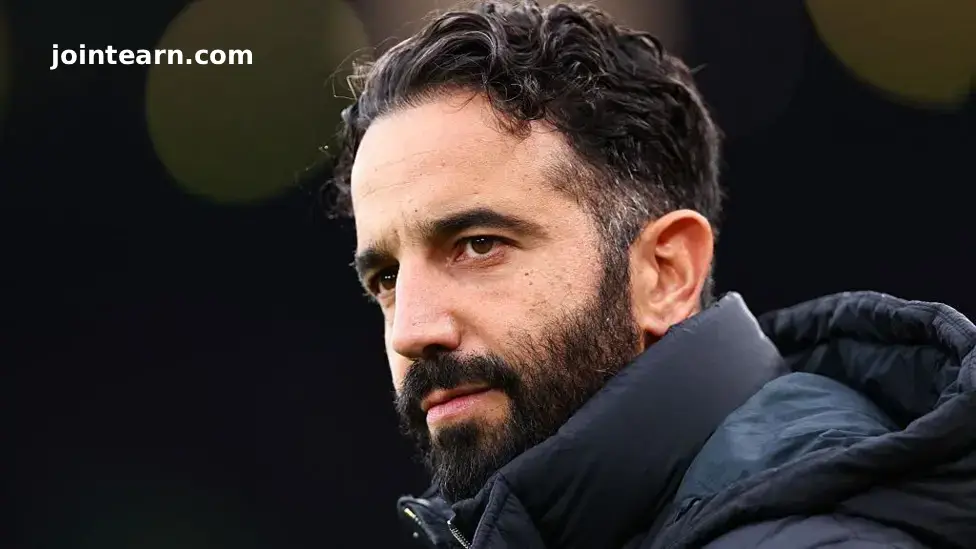
Ruben Amorim’s Challenge: Balancing Attack and Defence at Manchester United
Manchester United under Ruben Amorim have become one of the Premier League’s most entertaining sides this season — but that entertainment comes at a price. After ten league matches, United have been involved in an astonishing 33-goal tally — scoring 17 and conceding 16.
It’s a thrilling brand of football that has reignited excitement at Old Trafford, yet it has also exposed serious defensive vulnerabilities that threaten to undermine their progress.
Amorim’s men currently sit eighth in the Premier League, with only one clean sheet to their name. As the Portuguese coach seeks to restore United to the top four, the key question remains: can Manchester United tighten up defensively without sacrificing their attacking power?
United’s Attack Thriving Under Amorim
After years of inconsistency in front of goal, Amorim’s approach has unleashed United’s attacking potential. Their 17 league goals put them among the top five scoring teams, with only Arsenal, Chelsea, and Liverpool managing one more.
Fast, vertical transitions and dynamic movement in the final third have made United one of the league’s most watchable sides. Amorim’s 3-4-2-1 system, designed to give freedom to the wing-backs and attacking midfielders, has helped players like Amad Diallo, Marcus Rashford, and Rasmus Højlund flourish.
However, this same tactical structure has left United exposed when possession is lost. The back three often find themselves isolated, while wing-backs caught high up the pitch leave space for opposition wingers to exploit.
The result? 16 goals conceded in 10 matches, the highest among top-half clubs.
Ruben Amorim Admits: “We Cannot Suffer This Many Goals”
Ahead of United’s upcoming clash with Tottenham, Amorim was candid about his side’s defensive issues.
“If you look at the table, the team that is winning is not suffering goals,” Amorim said. “It’s all connected — when you attack better, you defend better. But we cannot suffer the amount of goals we are suffering. We need to be more aggressive, especially defending inside the box.”
Amorim was particularly concerned by Nottingham Forest’s 17 shots against United in their 2-2 draw earlier this month — two of which found the net from unchallenged crosses.
The Portuguese coach revealed that the squad has been working on closing down crosses and improving defensive positioning in the penalty area, emphasizing that United’s structure must become more compact if they are to challenge for Europe.
Leon Osman’s Verdict: “It’s About Balance”
Former Everton midfielder Leon Osman, speaking on BBC Radio 5 Live, observed both improvement and vulnerability in United’s display against Forest.
He noted how Amad Diallo, deployed as a right wing-back, was targeted aerially by Morgan Gibbs-White for Forest’s equaliser.
“If it was easy, everyone would do it,” Osman said. “The key is balance. You can’t stop attacking players from expressing themselves, but you must maintain positional discipline. That takes time — weeks, months, even a season — to perfect.”
Osman added that Amorim’s side have made visible progress compared to last season but still lack mental toughness in crucial moments. “Bar three minutes, United were impressive,” he said. “If they were mentally stronger, they might have held the lead.”
Tactical Breakdown: Why United Score Freely But Still Concede
Football tactics analyst Umir Irfan highlighted the key structural shifts Amorim has introduced this season — some positive, others risky.
1. Direct Play from the Goalkeeper
United have begun using Senne Lammens’ long distribution, building up less frequently from the back. This has reduced errors in defensive areas and kept the team more compact, with midfield and defence pushing up together.
This style suits United’s pacey forwards, allowing for quick counters and second-ball recoveries. Against pressing sides like Liverpool and Brighton, it has worked well.
2. Weakness Against Deep Blocks
However, against teams that sit deep, United’s directness becomes less effective. With less space to exploit, United’s forwards struggle to create chances, while the back line must maintain focus during sustained possession phases.
3. New Defensive Shapes
Out of possession, Amorim has evolved United’s pressing system from a 5-2-3 to a more fluid 4-3-3, with Luke Shaw stepping into midfield. When defending deeper, United shift into a 5-4-1, providing more width but inviting crosses.
While this helps contain central spaces, opponents often find success from wide areas — a recurring weakness seen in several of United’s goals conceded this season.
Can United Maintain Their Cutting Edge While Improving Defensively?
The challenge for Amorim is clear: find balance without blunting United’s attack.
If United continue to play directly, they will likely concede possession and defend in deep blocks for extended spells. To succeed, they must close down crossers more aggressively and defend the back post with greater awareness.
Alternatively, a shift toward greater ball dominance could help United control matches, allowing them to shape defensive transitions more effectively. But this would also reduce their explosive counter-attacks — a key part of their identity under Amorim.
Ultimately, the solution may lie in incremental improvement rather than tactical overhaul. United don’t need to abandon their attacking DNA — they simply need to be smarter without the ball.
The Verdict: A Balancing Act in Progress
Manchester United’s transformation under Ruben Amorim is undeniable. They are scoring more, pressing harder, and playing with renewed identity. Yet the numbers don’t lie — defensive frailties persist.
If United can refine their shape, sharpen their defensive mentality, and maintain their attacking tempo, they may yet evolve into the balanced, modern powerhouse Amorim envisions.
For now, though, they remain the Premier League’s great entertainers — thrilling, unpredictable, and still learning to defend.


Leave a Reply